13 Nov 2019 - {{hitsCtrl.values.hits}}
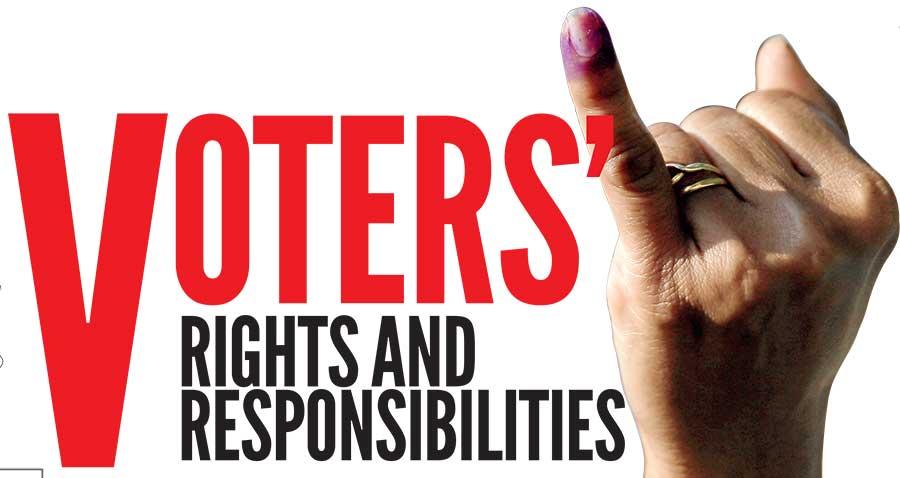
Exercising one’s right to vote is the fundamental right of any citizen. With Sri Lanka’s eighth Presidential Elections just weeks away on 16 November, there is an urgent and important need for citizens to educate themselves on how to exercise their voting rights, right. In this light, Daily Mirror spoke to Election Commission member Prof. Ratnajeevan Hoole, Transparency International Sri Lanka (TISL) head Mr. Asoka Obeyesekere, People’s Action for Free and Fair Elections (PAFFREL) head Mr. Rohana Hettiarachchi and Centre for Policy Alternatives (CPA) head Dr. Paikiasothy Saravanamuttu on the process and formalities of voting.
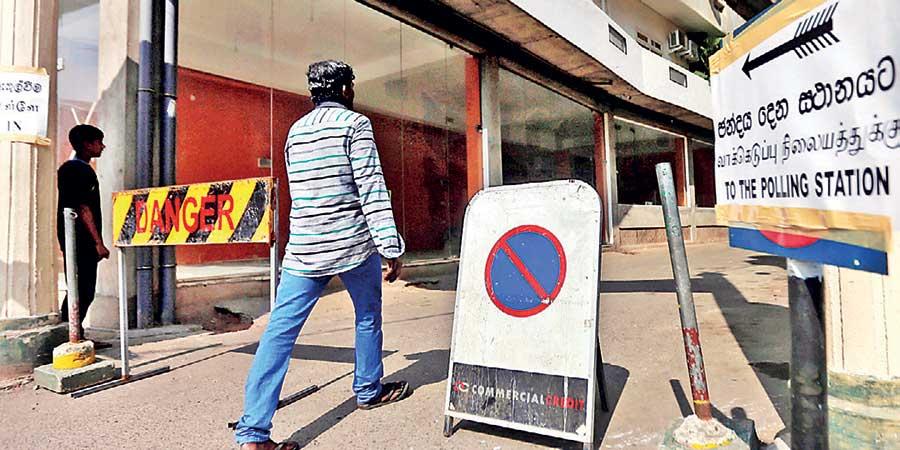
The first officer will examine the voter’s identification document, and if satisfied direct the voter to the next officer.
The second officer will request the polling card issued by the EC, find the voters name in the electoral register and clearly announce the voter’s name and serial number. If there is no objection, the voter is directed to the next 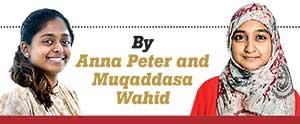 officer.
officer.
The third officer applies indelible ink on the little finger of the voter’s left hand. If the voter objects, they won’t be able to vote. After the ink is applied, the officer hands the ballot paper to the voter.
The voter should then proceed to the covered cubicle and mark their preferences on the ballot paper. They must fold the ballot paper into the necessary size, and insert it into the ballot box.
Prof. Hoole said the EC would be using the 2018 Electoral Register. Those under the 2018 Electoral Register and those who turned 18 years by 1 June 2018 would be eligible to vote.
Polling cards will be distributed from 26 October to 9 November. Voters who don’t receive their polling cards by 9 November can go to the nearest post office with reference to their residential address listed in the 2018 Electoral Register. This must be done from 11 to 16 November.
This year’s high number of candidates challenges the probability of a single candidate securing over 50% of votes. If no candidate crosses this threshold, preferential voting comes into play. Mr. Hettiarachchi, explained that if no candidate wins over 50% of votes in the first count, the second and third preferential votes are counted. The candidate securing the majority of votes after the second and third preferential votes counted would become the President, he said.
“If the voter votes for only one candidate, they can place a cross in front of their name. If the voter intends to vote for more than one candidate, they should use the numbers 1, 2, 3 in order of their preference. If the voter puts a cross and a number, the vote will be rejected and it will become a spoilt vote,” explained Mr. Hettiarachchi.
This facility is available to:
State officials engaged in election duties
Members of the Armed Forces, Police and Civil Defence Services engaged in duty
Officers and public servants engaged in essential services
Mr. Hettiarachchi said those in the above categories should register well in advance. If their application is accepted, they can vote in their work places ahead of elections. Postal voting will be conducted on 31 October and 1, 4 and 5 November. If a registered postal voter cannot cast their vote on these days, the EC said they could cast their votes on 7 November at an elections office close to their work place.
The EC requires postal voters to posses one of the following identification documents when voting.
The EC has taken steps to provide facilities for voters with special needs and those who are differently abled. According to elections laws, a person who is visually or physically disabled can be accompanied by another person to assist in marking their ballot paper. The assister should be over 18 years and cannot be a candidate, an authorized agent or polling agent of any political party contesting the election.
When a visually disabled voter is unaccompanied, the Senior Presiding Officer (SPO) will enter the cubicle with the voter and another officer. The SPO should inquire and mark the vote according to the voter’s preference before the other officer. To be eligible for this, a Certificate of Eligibility (CE) should be handed over to the officers at the polling area.
The CE form can be collected from the Grama Niladhari or any District Elections Office. The completed form should be attested by the Grama Niladhari and handed over to a Government Medical Officer, who would examine the voter and certify the CE.
The voters should arrive at the polling station with their polling card, approved proof of identity and the CE along with the person assisting them. After establishing the identity of the voter, the assister can mark the vote in the cubicle in front of the SPO and another poll staff member.
- Postal voting will be conducted on 31 October and 1, 4 and 5 November
- Prof. Hoole said the EC would be using the 2018 Electoral Register
- This year’s high number of candidates challenges the probability of a single candidate securing over 50% of votes
- The EC has taken steps to provide facilities for voters with special needs and those who are differently abled
The extra-long ballot paper and unfamiliar symbols could pose problems to some voters, Mr. Hettiarachchi noted. “This could especially affect the elderly and those who are not too aware of the symbols,” he said. The question of the size and visibility of symbols was raised at the Party Secretaries’ Meeting, but due to the high number of candidates, no solution was given. Dr. Saravanamuttu stressed that people should be well aware of the candidates and their symbols to prevent such issues from arising.
Meanwhile, Mr. Obeyesekere said possible complications could arise in the use of preferential votes. “Although the system has been prevalent for over 40 years, this would be the first time it’s utilised,” he said. However he added that information on the contestants and symbols would be disseminated by the EC and should not be a significant concern. “The Elections Commissioner has articulated he is confident about handling the process,” Mr. Obeyesekere said.
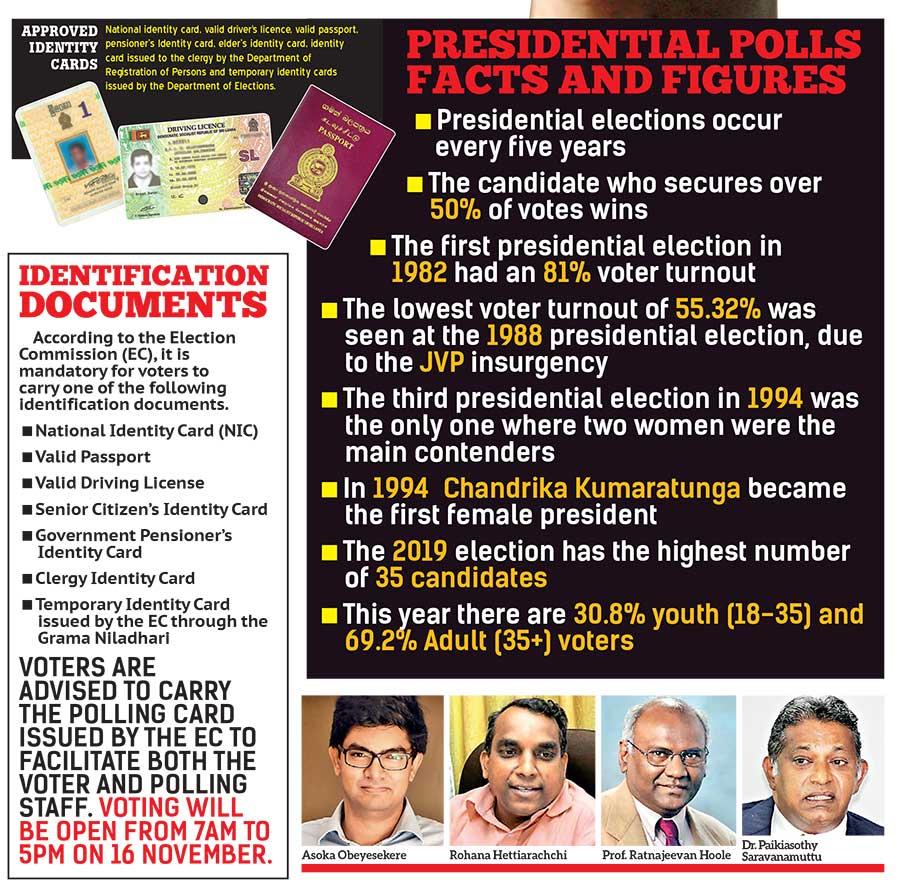
Another concern Mr. Obeyesekere raised was the abuse of state resources, which is the focus of TISL. “This could be a significant issue in light of the division between the central and local government and as the Provincial Councils have not been elected,” he said, adding that this was the first time a presidential election was being held after the 19th Amendment. The amendment warns that if public officers or employees failed to comply with the directions of the EC, they could be fined or imprisoned. “This is a constitutionally enshrined provision to maintain and uphold the directions of the EC. It’s important to see how it will be upheld in case of any violations at this election,” he said. Mr. Obeyesekere called for the enforcing of an accountability mechanism to ensure that such abuse is minimised. He urged people to be vigilant of the use of state resources and report any abuses. “Don’t think that something is too small. It could end up being a serious misappropriation,” he emphasized.
Comparing the upcoming election with past polls, Mr. Obeyesekere observed a degree of voter disillusionment with the prevailing political culture. He said this had resulted in different forces trying to ‘pitch themselves’ as an alternative. “To be a true stakeholder of the future, one must engage whenever possible, and one such way is through voting,” he said. He urged citizens to use this small window of opportunity to participate in the country’s decision-making process. This was echoed by Prof. Hoole, who advised voters to carefully study the candidates before voting.
Mr. Obeyesekere said Sri Lanka should acknowledge the number of overseas workers. “They must be provided with an opportunity to vote, considering their contribution to the economy,” he said. There needed to be a focus on financial flows during election time. “Financing rules addressing election expenses, ensuring there is disclosure of campaign contributions and inline contributions, is essential,” he added.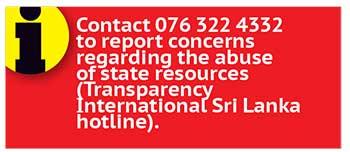
Meanwhile, Mr. Hettiarachchi noted that though remand prisoners had the right to vote, they were unable to exercise their rights as there was no system in place to enable them to vote. He revealed that doctors and nurses on duty during election time and in-patients were sometimes unable to vote due to the lack of a system. “In some countries, there is an advanced voting system in place. We should consider such systems in the future so that everyone is able to exercise their franchise,” he said.
Prof. Hoole disclosed that Special Task Force (STF) personnel would be posted in polling booths in areas of special security concern. “They will be posted particularly in the North-West and the East, in areas like Chilaw, Kurunegala, Ampara, Kattankudy,” he said, adding that this was needed to alleviate people’s security concerns.
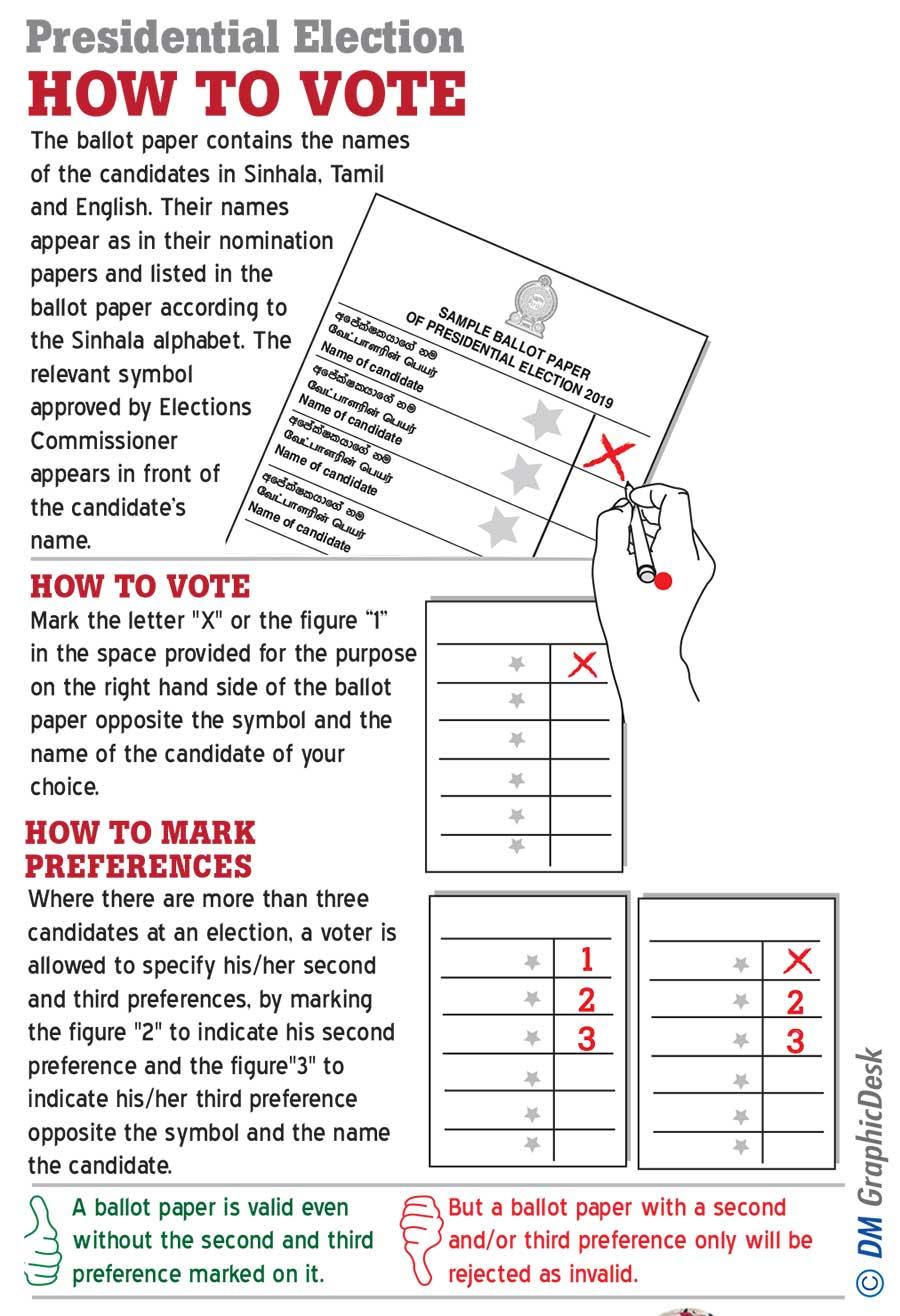
28 Nov 2024 8 hours ago
28 Nov 2024 8 hours ago
28 Nov 2024 28 Nov 2024
28 Nov 2024 28 Nov 2024
28 Nov 2024 28 Nov 2024